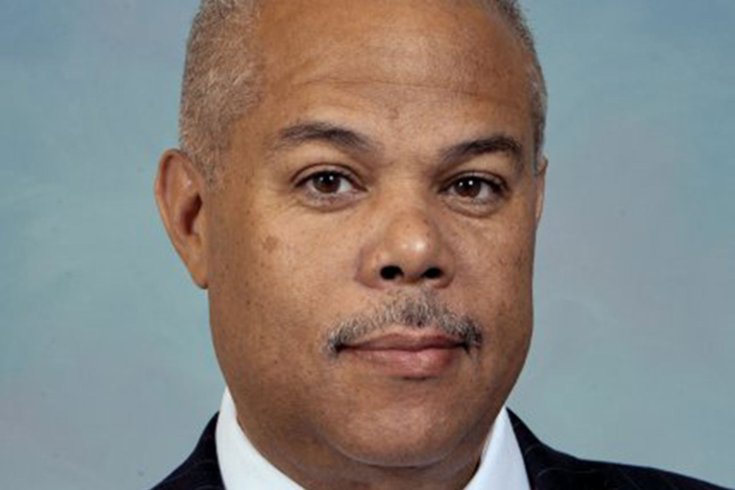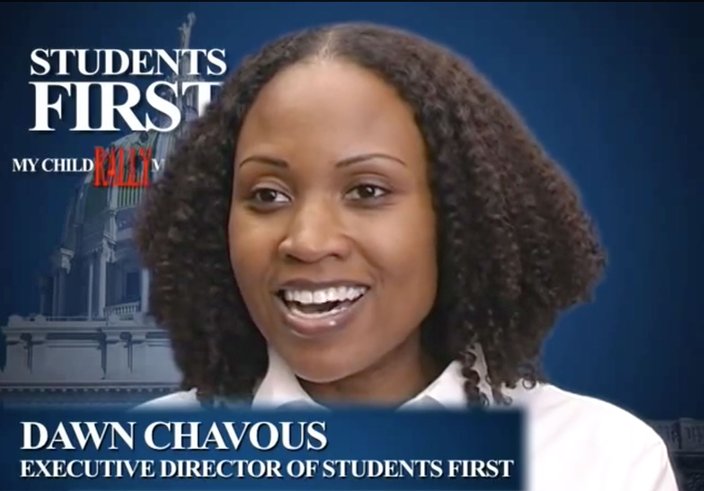A few weeks ago, state senator and would-be Philadelphia mayor Anthony H. Williams addressed a gathering of self-described "progressive" voters going by the name Philly for Change, making his pitch and fielding questions. Unsurprisingly, the topic of education came up quickly.
Williams, a longtime proponent both of charter schools and private school voucher programs, has accepted substantial — almost monolithic, at times — donations from groups promoting those agendas. When the questions started coming, Williams didn’t deny his support for charter schools (he did not, however, mention the word “vouchers”) but did downplay his connection to his erstwhile donors and their agendas.
“I wasn’t dependent on one interest group,” he said. “I’m owned by no one.”
“If you really want to address the gravest problems (in money in politics), you’ve got to break that nexis between lobbyists, money and lawmakers.” – Craig Holman, of Public Citizen
It’s a point he’s made repeatedly — and no less since public campaign finance reports released in January showed that Williams had received more donations from political action committees associated with groups pushing charter school expansion, especially the same individuals, the pro-voucher managers of the Bala Cynwyd-based Susquehanna International Group, who pumped a staggering $5 million into his 2010 gubernatorial run and contributed roughly a quarter-million dollars to a newly-formed super PAC expected to use independent expenditures to support his mayoral bid.
In the face of attacks over his connections to these groups, Williams has argued his distance. At a recent press conference, as reported last week by NewsWorks, Williams called it “curious” that he would be labeled “the charter school guy.”
But a review of years’ worth of campaign finance filings, lobbying disclosure reports and other public documents by PhillyVoice suggests the ties between Williams’ political campaigns — particularly the Susquehanna International Group and the organizations it has founded to push pro-voucher legislation — run deeper than a few donations, however large.
None of these relationships, according to multiple experts interviewed, violate rules governing campaign finance or lobbying rules.
But they do, perhaps, show a proximity between Williams’ candidacy and the money backing it that challenges the degree to which Williams downplays those connections.
Williams’ mayoral campaign manager, Dawn Chavous, for example, has worked not only for Williams as a political consultant but also for his biggest donors.
Chavous, who is married to City Councilman Kenyatta Johnson, was paid to assist the same political action committee, the Susquehanna International Group-sponsored Students First PAC, that’s supported Williams for years. She also consulted for Williams' political campaign even while lobbying the state on behalf of Students First Corp., a nonprofit established by the Susquehanna International Group members, in favor of legislation Williams helped sponsor — and while its affiliated PAC donated generously to Williams.
Dawn Chavous, Anthony Williams’ mayoral campaign manager, has worked not only for Williams as a political consultant but also for his biggest donors. (Students First PA / YouTube)
Moving back and forth between consulting for a candidate for office and working for an independent PAC is neither unethical nor even unusual. Several political experts contacted by PhillyVoice said it’s a commonplace practice in the often small world of state and local politics.
But the fluidity between Chavous' work for Students First PAC and Students First Corp. didn’t just occur between her gigs as Williams’ own political consultant: In many cases, they overlapped.
Between mid-2010 and early 2011 — the year Williams would help push a controversial pro-voucher bill out of a state senate committee — Chavous was a consultant for Students First PAC. During that period, the PAC paid roughly $44,000 to Chavous and donated $100,000 to Williams.
But Chavous appears to have also been working directly for Williams, in some capacity; his campaign paid her at least $30,000 for consulting during the same period in which the PAC employing her was donating to Williams.
In 2013, the same year Williams co-sponsored a bill to remove caps on charter school expansion, Students First PAC donated $50,000 to Williams’ senatorial campaign. And during the same year, Williams’ political campaign paid $42,000 to Chavous, who was then the executive director of Students First Corp., which paid Chavous $125,000 annually to promote its agenda around the state.
A BOOST FOR HER OWN BUSINESS
As a registered lobbyist, Chavous was not allowed to serve as the treasurer or chairperson of a campaign committee. But there is no prohibition on her serving as a consultant to Williams’ campaign at the same time.
Those aren’t the only ways Williams' campaign has been close to money from pro-voucher interests. Lobbying disclosure reports filed by Students First Corp. indicate it received funding, in turn, from the American Federation for Children, another nonprofit that has pushed private school vouchers. Williams has since received donations from at least three other PACs that received substantial donations from the Students First PAC.
Chavous, meanwhile, rejoined Williams’ campaign in the run-up to his mayoral bid and hasn’t worked for the Students First entities since. But her services for Williams appear to have been paid, at least in part, using $125,000 in donations to Williams from Students First PAC raised and spent in the months before he announced — and, crucially, before he was
subject to the city’s campaign finance limits.
And if Williams’ campaigns have utilized Chavous’ political expertise while, at times, she worked for his biggest funders, legislation he helped pass has also helped bolster a separate business of her own. In 2012, Williams co-sponsored and helped pass the “Opportunity Scholarship Tax Credit Program,” which allows businesses to get tax credits by donating to organizations designated to provide “scholarships” — critics say “vouchers” — to help public school students attend private schools.
Among the first companies to become eligible to receive such donations was Sky Community Partners, a nonprofit founded that year by Chavous, who serves as its president. In 2013, Sky Community Partners reported roughly $1.3 million in donations (though it reported having spent only about $20,000).
A spokesperson for the Susquehanna International Group says that it did donate money to Chavous' nonprofit, though it did not elaborate on exactly when or how much.
NO RULES BROKEN
None of these relationships break the rules. As a political consultant, Chavous was free to move between working for Williams’ campaigns and the various political interests that have helped support them.
There’s no prohibition in state laws on a lobbyist simultaneously consulting for a political campaign. And while PACs making (unlimited) independent expenditures on behalf of candidates may not "coordinate" with the campaigns themselves, the same restrictions don’t apply to PACs simply contributing money directly to candidates.
But they do illuminate the degree to which Williams' political fortunes and campaign infrastructure have been tied to his supporters from the Susquehanna International Group – the kinds of ties that government reform groups have sought to limit.
“You could have good campaign laws that just say, ‘You can’t serve two masters,’” argues Craig Holman, of the good-government group Public Citizen.
“If you really want to address the gravest problems,” in money in politics, says Holman, “you’ve got to break that nexis between lobbyists, money and lawmakers.”
The Williams campaign declined to answer any specific questions about these relationships – including in what capacities Chavous worked for in his campaigns while simultaneously working for the Students First entities.
In a statement, the Anthony Williams for Mayor campaign suggested that PhillyVoice’s questions had originated from “our opponents,” who “... spend time cooking up conspiracy theories and fantasies that use information to come to misleading conclusions.”
“Sen. Williams believes that we owe it to Philadelphia voters to offer a positive vision for education," the campaign said. "His education agenda is based on the belief that every single child in our city deserves a great education regardless of race, gender, or ZIP code.”

 Source/www.senatoranthonyhwilliams.com
Source/www.senatoranthonyhwilliams.com
